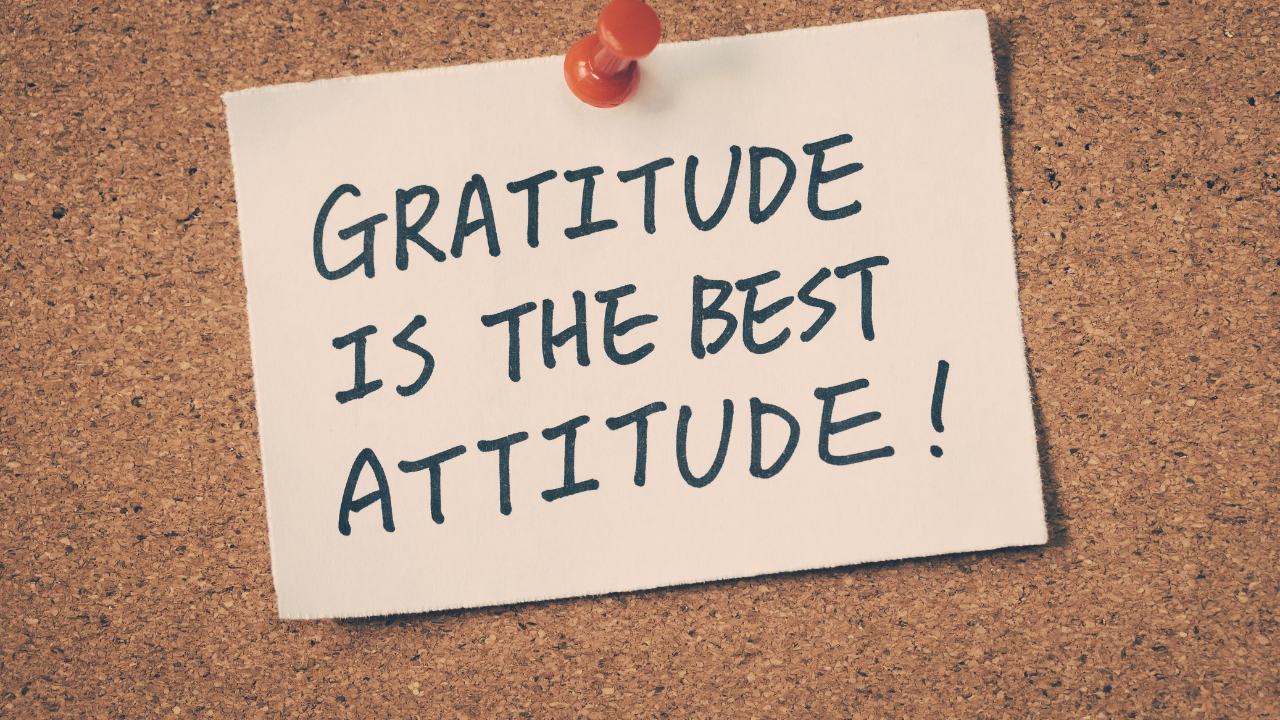Your Brain Will Be Grateful

“Say ‘Thank You’,” you were told time and time again as a kid. Your parents just wanted you to be polite, but it turns out there’s actually a lot more to gratitude than just good manners.
Building a practice of gratitude has been linked to better wellbeing, decreased depression, better-quality sleep, higher self-esteem, better relationships, and greater overall happiness.
Practice Makes Positive
And the more you practice, the easier it gets: Gratitude activates a positive neural feedback loop. Every time you’re grateful, your brain fires off dopamine—the “feel good” hormone—making it want to repeat the behavior. Furthermore, your brain has a confirmation bias, meaning it searches for information to confirm what it already thinks is true. So when you start scanning your environment for things to be grateful for, you’ll train your brain to look for things that confirm the positive, rather than the negative. It truly is a gift that keeps on giving.
This is a more sustainable path to happiness than simply acquiring more, which is what we tend to do to feel good fast. Not only is that much more costly (financially and emotionally), it’s also detrimental to your well-being. When you focus on scarcity, it breeds feelings of anxiety and frustration—leading you to buy more, do more, etc. perpetuating what’s called the “hedonic adaptation” of constantly wanting more, but never feeling satisfied.
Smarter, More Strategic Decisions
On the other hand, positive people are more prone to make patient, thought-out decisions. Because when you focus on what you already have, you feel content, and make less impulsive decisions to fill that uncomfortable hole of “wanting”.
There’s no doubt that making decisions in your best interest also boosts your confidence. When you can make smart decisions and filter out detrimental, distracting forces, you can trust your voice to work in your best interest and make sound decisions. That’s not the only way that gratitude boosts your confidence…
Gratitude has also been proven to increase self-esteem. One Harvard study found that amongst two groups—one of which received gratitude, and one that received just acknowledgment—a whopping 55 percent of the group who received thanks felt higher levels of self-worth, compared with just 25 percent of the group that received acknowledgment. Receiving gratitude makes you feel like your efforts make a difference, and that they’re part of something larger and more important than yourself. And that self-efficacy and feeling of purpose and belonging leads to higher self-esteem and self-confidence.
Really Good…Enough
Gratitude breeds confident feelings of “enoughness”—having everything you need—that counter feelings of lacking and inadequacy. This in turn can boost your self-image, as well as your self-efficacy: When you believe you have enough in your life, you become more optimistic and resilient, by scanning for the resources you have at your disposal to make it through adversity.
So the next time you catch yourself thinking a scarcity thought, such as, “If I only had…” nip it in the bud with a thought about something you’re grateful to already have. Or better yet, don’t wait for that initial thought to materialize: Build a practice of writing 3-5 things a day that you’re grateful for. There is always, always something to be grateful for—and even just searching for it will not only make you happier, but healthier and more confident, too.
Special thanks to Elior Moskowitz for her research and editorial contribution to this post.
Stay Connected
Get news, podcast episodes & other updates delivered to your inbox.
We'll never sell your information. Unsubscribe any time.

